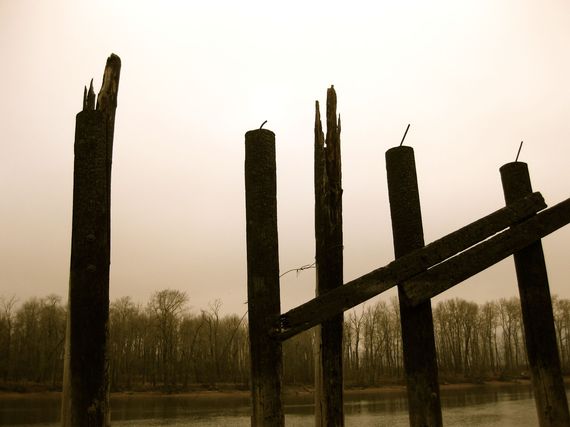The suicide of Robin Williams has once more brought the illness of depression into the national spotlight. The National Suicide Prevention Lifeline received 7,500 calls the day after Williams' death, twice the usual number. Local crisis centers report a similar increase. Sadly, it had to be the death of a beloved comic to encourage depressed individuals to reach out for help.
People who have never suffered from serious depression wonder why a friend or family member would commit suicide. Why would a mother, or a successful writer or a person of wealth and prominence choose to die? It seems puzzling, and even threatening. Where is the dark place that nurtured that decision? Could I also fall into that darkness and despair?
In my role as a minister, I have counseled many who suffer from depression. But I speak from personal experience as well, for I have dealt with depression off and on all of my adult life. I never once seriously considered suicide, but I can understand why depressed people decide to end their lives.
The thing that makes depression unbearable is the isolation. We know we should get out, try to connect, but anxiety makes us want to move away from the chatter. We go to a concert or a lecture that normally would be of great interest, and we experience nothing. Others around us are talking and laughing in response to the event, and although we hear the words or the music, we simply don't take it in emotionally. We are ever on the periphery, observing. We even observe ourselves observing.
Depressed people know the social script. We smile, because we know we are supposed to. When someone asks, "How are you?" we say "Fine" or even "Great!" After all, we don't want to drag another into our dark world. When we dare to speak the truth to intimates or friends, we see the bewilderment and frustration in their eyes. They want to help, but don't know how. We stop telling people how we feel, lest we become even more isolated.
We feel guilty, believe we don't measure up and are convinced that we never will. Something is wrong with me, and it's never, never going to go away. Depression is a state more intolerable than any other - more devastating than physical pain, which we understand is a function of the flesh, not of character or essence. Depression is not the same as grief, which is a normal response to loss, and can offer a cleansing release. Depression is rather a shutting down of the emotive self, a fracturing of the will. It is living behind a glass plate and looking at life on the other side.
We go through the day encased in a bubble, untouched by the life moving all around us. Ordinary sadness can be punctured by beauty, grief by hope. But depression disallows the small joys that coax others into wanting to get up another day. We can describe the sunset, but we can't experience the sunset. We know people care, but no one can reach us. We are outcast, forsaken, a canker sore on the body of the community. We just want the pain to end.
So what is the best way to help someone you suspect may be depressed? Don't tell them to count their blessings. Don't tell them that everybody is sad sometimes, and to buck up. Ask them how they feel. Listen. Be patient, as depressed people do not always make the best decisions and often do not act in their own best interest. Let them know you love them. Ask them if they have thought about hurting themselves. Help them understand that depression is an illness, not a personal failure, and can be treated. Encourage them to seek professional help. Be there for them.
A suicide is of course devastating for friends and family. We are likely to ask ourselves, what could I have done differently, how could I have prevented this terrible deed? If only I called or sent that birthday card, maybe my friend would not have chosen suicide. Such thoughts are illusions: you cannot control the behavior or decisions of another. Never blame yourself, thinking that you could have prevented the death of one you love. Ultimately, that individual must decide to live or to die.
Marilyn Sewell is the author of a new memoir, Raw Faith: Following the Thread.
Need help? In the U.S., call 1-800-273-8255 for the National Suicide Prevention Lifeline.

